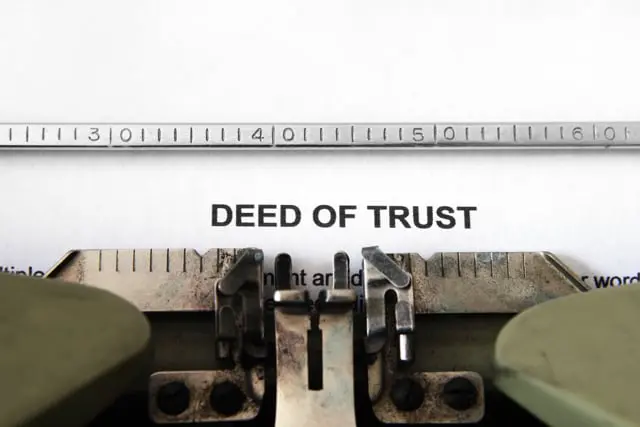Child custody is one of the most critical and sensitive issues in divorce cases. The determination of child custody involves a complex legal process that prioritizes the best interests of the child while balancing the rights and responsibilities of both parents. Understanding how child custody is determined can help parents navigate this challenging aspect of divorce more effectively. This article will explore the factors that influence custody decisions, the types of custody arrangements, and the legal process involved in determining child custody.
Factors Influencing Child Custody Decisions
Best Interests of the Child
The primary factor courts consider when determining child custody is the best interests of the child. This standard ensures that the child’s physical, emotional, and psychological well-being are prioritized above all else. Courts evaluate several factors to determine what arrangement will best serve the child’s needs.
Child’s Age and Health
The child’s age and health are crucial factors in custody decisions. Younger children may need more stability and routine, while older children might benefit from a custody arrangement that allows for more flexibility. The child’s physical and mental health also play a significant role, as courts aim to place children in environments where their medical and emotional needs can be adequately met.
Parental Capability and Fitness
Courts assess each parent’s ability to care for the child, considering factors such as parenting skills, emotional stability, and physical health. A parent’s past behavior, including any history of abuse, neglect, or abuso de sustancias, is also scrutinized. The goal is to ensure that the child is placed with a parent who can provide a safe, stable, and nurturing environment.
Parent-Child Relationship
The relationship between each parent and the child is another critical consideration. Courts look at the strength and quality of the bond between the child and each parent, as well as the parent’s involvement in the child’s life. This includes evaluating the parent’s role in daily activities, education, and extracurricular involvement.
Continuity and Stability
Maintaining continuity and stability in the child’s life is a significant factor in custody decisions. Courts prefer arrangements that minimize disruption to the child’s routine, including their home environment, school, and community. The aim is to provide a sense of security and predictability for the child during a period of significant change.
Child’s Preferences
In some cases, the child’s preferences may be taken into account, particularly if the child is of sufficient age and maturity to express a reasoned preference. While the child’s wishes are not determinative, they can influence the court’s decision, especially when supported by other factors that align with the child’s best interests.
Types of Child Custody Arrangements
Legal Custody
Legal custody refers to the right and responsibility to make significant decisions about the child’s upbringing, including education, healthcare, and religious instruction. Legal custody can be awarded solely to one parent (sole legal custody) or shared between both parents (joint legal custody).
Sole Legal Custody
Sole legal custody grants one parent the exclusive right to make major decisions regarding the child’s life. This arrangement is often chosen when one parent is deemed unfit or incapable of participating in decision-making due to issues such as abuse, neglect, or substance abuse.
Joint Legal Custody
Joint legal custody allows both parents to share decision-making responsibilities. This arrangement requires effective communication and cooperation between parents, as both must agree on major decisions affecting the child’s welfare. Joint legal custody is often preferred when both parents are capable and willing to work together in the child’s best interests.
Physical Custody
Custodia física pertains to where the child will live and who will be responsible for their day-to-day care. Physical custody can also be awarded solely to one parent (sole physical custody) or shared between both parents (joint physical custody).
Sole Physical Custody
Sole physical custody means the child primarily resides with one parent, who is responsible for their daily care. The non-custodial parent typically receives visitation rights to maintain a relationship with the child. Sole physical custody is often granted when it is in the child’s best interests to have a stable home environment with one parent.
Joint Physical Custody
Joint physical custody involves the child splitting time between both parents’ homes. This arrangement aims to ensure that the child maintains a strong relationship with both parents. Joint physical custody requires a high level of cooperation and flexibility from both parents to manage schedules and transitions effectively.
The Legal Process for Determining Child Custody
Filing for Custody
The process of determining child custody begins with filing a custody petition in family court. This petition can be filed by either parent as part of a divorce proceeding or as a standalone action. The petition outlines the desired custody arrangement and the reasons supporting it.
Temporary Custody Orders
While the custody case is pending, the court may issue temporary custody orders to establish interim arrangements. These orders provide stability for the child during the legal process and outline each parent’s responsibilities and visitation rights.
Mediation and Negotiation
Many states require parents to participate in mediación to resolve custody disputes before proceeding to trial. Mediation involves a neutral third party who facilitates discussions between the parents to reach a mutually acceptable agreement. Mediation can be an effective way to resolve disputes amicably and avoid the adversarial nature of a court trial.
Custody Evaluation
In cases where parents cannot reach an agreement through mediation, the court may order a custody evaluation. This evaluation is conducted by a qualified professional, such as a psychologist or social worker, who assesses the family dynamics, the child’s needs, and each parent’s ability to meet those needs. The evaluator provides a report with recommendations to the court.
Court Hearing and Trial
If mediation and custody evaluation do not result in an agreement, the case proceeds to a court hearing or trial. During the hearing, both parents present evidence and testimony to support their desired custody arrangement. The judge considers all relevant factors, including the best interests of the child, before making a final custody determination.
Post-Judgment Modifications
Custody arrangements are not set in stone and may need to be modified as circumstances change. Parents can request modifications to the custody order if there is a significant change in circumstances, such as a relocation, a change in the child’s needs, or a change in a parent’s situation. The court will review the request and determine if the modification is in the child’s best interests.
The Role of a Child Custody Lawyer
Representación jurídica
Having an experienced child custody lawyer is crucial for navigating the complexities of custody disputes. A lawyer can provide valuable guidance, represent your interests in court, and help you understand your legal rights and options.
Preparing for Custody Proceedings
A child custody lawyer assists in preparing for custody proceedings by gathering evidence, organizing documents, and developing a strong case strategy. This preparation is essential for presenting a compelling argument to the court.
Negotiating and Mediating
A skilled lawyer can help negotiate and mediate custody arrangements, aiming to reach an amicable agreement that serves the child’s best interests. Effective negotiation can often prevent the need for a contentious court trial.
Advocating in Court
If the case proceeds to trial, a child custody lawyer advocates on your behalf, presenting evidence and arguments to support your desired custody arrangement. The lawyer’s expertise is critical for navigating the legal process and achieving a favorable outcome.
Impact of Parental Conflict on Child Custody
Emotional and Psychological Effects on Children
High levels of parental conflict can have detrimental effects on children, impacting their emotional and psychological well-being. Children exposed to ongoing conflict may experience anxiety, depression, and behavioral issues. Courts aim to minimize the child’s exposure to conflict by encouraging cooperative parenting and making custody decisions that prioritize the child’s stability and security.
Parental Alienation
Parental alienation occurs when one parent attempts to undermine the child’s relationship with the other parent. This behavior can significantly impact custody decisions, as courts recognize the importance of maintaining strong bonds with both parents. Demonstrating a willingness to support the child’s relationship with the other parent is crucial in custody cases.
Coparenting and Communication Strategies
Comunicación eficaz
Effective communication between parents is essential for successful coparenting. Clear, respectful, and consistent communication helps minimize misunderstandings and conflicts, ensuring that both parents remain informed about the child’s needs and activities.
Developing a Parenting Plan
A well-structured parenting plan outlines each parent’s responsibilities, visitation schedules, and decision-making processes. The plan provides clarity and consistency for both parents and the child, reducing the potential for disputes and misunderstandings.
Conflict Resolution
Having strategies in place for resolving conflicts is essential for maintaining a cooperative coparenting relationship. This can include setting regular meetings to discuss the child’s needs, using mediation services when disputes arise, and prioritizing the child’s well-being in all decisions.
Resources and Support for Parents
Support Groups
Support groups provide a valuable resource for parents navigating child custody disputes. These groups offer emotional support, practical advice, and a sense of community, helping parents cope with the challenges of custody arrangements.
Counseling and Therapy
Professional counseling and therapy can be beneficial for both parents and children during and after a divorce. Therapy provides a safe space to address emotional issues, develop coping strategies, and improve communication skills.
Educational Resources
Numerous educational resources are available to help parents understand the legal aspects of child custody and develop effective coparenting strategies. Books, online courses, and workshops can provide valuable information and support.
Conclusión
Determining child custody in a divorce case involves a complex legal process that prioritizes the best interests of the child. Understanding the factors that influence custody decisions, the types of custody arrangements, and the legal process can help parents navigate this challenging aspect of divorce more effectively. By prioritizing the child’s well-being, seeking the guidance of an experienced child custody lawyer, and utilizing available resources, parents can work towards a custody arrangement that supports their child’s needs and fosters a healthy co-parenting relationship.
Type of Attorney for Child Custody Cases
For matters related to child custody, you should seek the services of a abogado de derecho de familia who specializes in child custody and support issues. These attorneys have the expertise to navigate the complexities of custody disputes and work to ensure the best interests of the child are prioritized. Family law attorneys can handle various aspects of custody cases, including negotiations, mediation, and court proceedings.
Finding a Child Custody Lawyer on Attorneys.Media
To find a qualified child custody lawyer on Abogados.Media, follow these steps:
- Visit the Attorneys.Media Website: Go to Abogados.Media.
- Use the Search Function: Utilize the search bar on the homepage to enter keywords such as “child custody lawyer,” “family law attorney,” or “custody attorney.”
- Browse Categories: Navigate to the “Categories” section and select relevant categories such as:
- Derecho de familia
- Custodia y protección de menores
- Asesoramiento jurídico y consulta
- Representación jurídica
- Watch Video Interviews: Attorneys.Media features video interviews with lawyers who specialize in different fields. Watching interviews with family law attorneys can provide insights into their expertise and approach to handling child custody cases.
- Read Lawyer Profiles: Review the profiles of family law attorneys to learn about their experience, areas of specialization, and client reviews. This information helps you assess their qualifications and suitability for your case.
- Contact Attorneys: Use the contact information provided on the lawyer’s profile to reach out and schedule a consultation. Initial consultations are an opportunity to discuss your case, understand the lawyer’s approach, and evaluate their suitability.
By following these steps, you can find a qualified and experienced child custody lawyer on Attorneys.Media who can provide the legal representation and guidance you need for your custody case.








